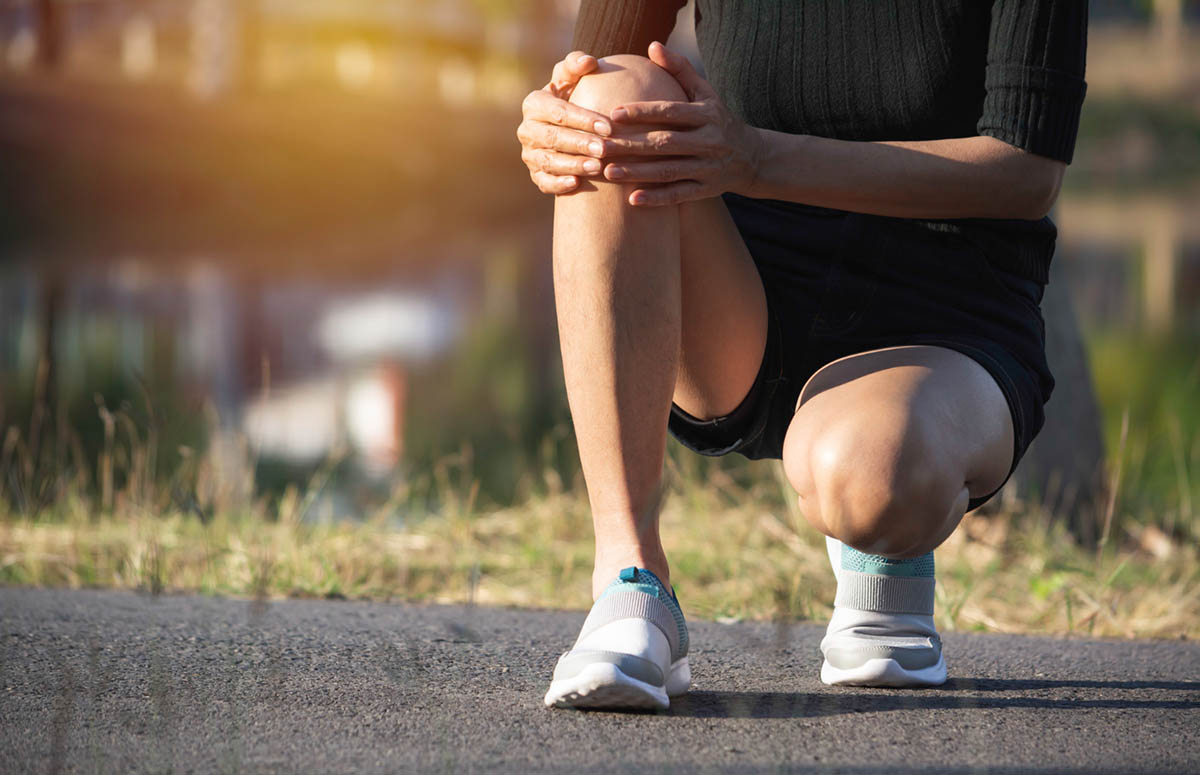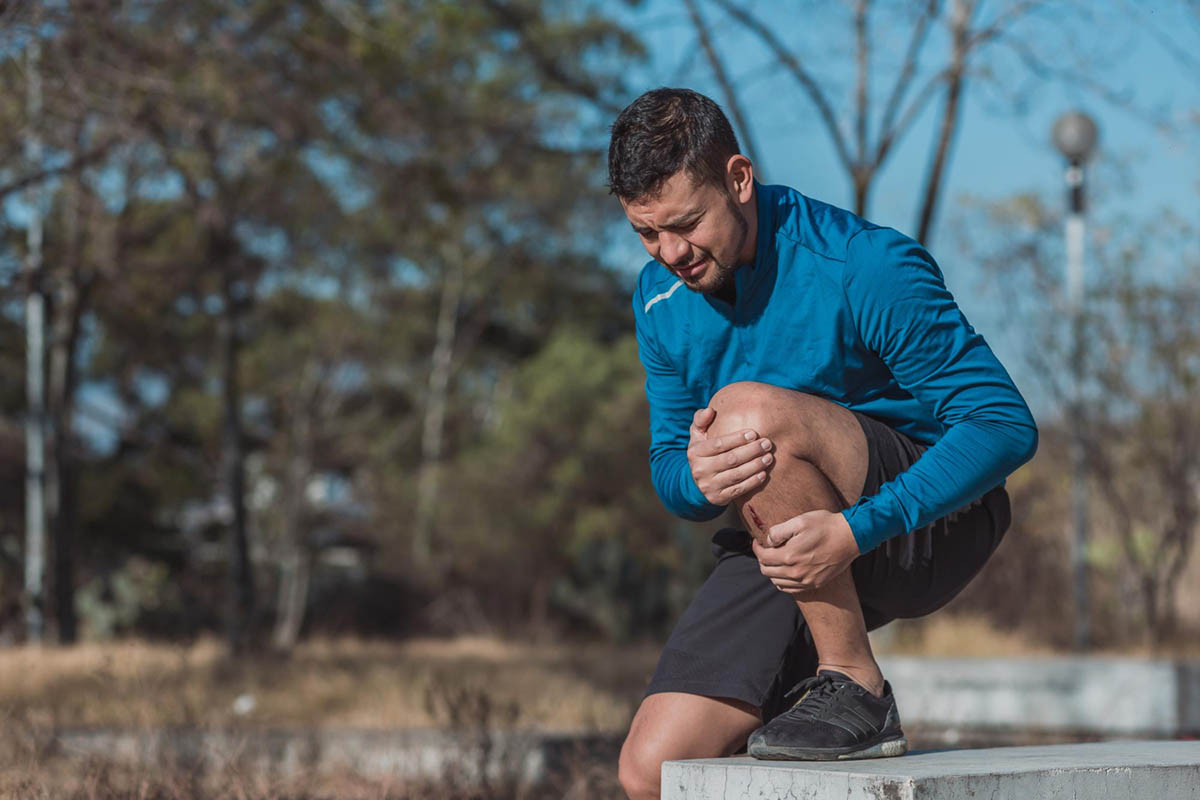Knee popping can be an unsettling experience, especially when it happens while you’re moving—like bending or straightening your leg. Often, it’s harmless, but other times it could signal an underlying issue. In this article, we’ll explore the possible causes of knee popping, when to be concerned, and various treatment options to keep your knees in top condition.
Common Causes of Knee Popping Sound
Knee popping can occur for a variety of reasons. This could be due to gas bubbles forming in the synovial fluid or soft tissues rubbing against each other. If you’re experiencing knee popping and pain, it’s essential to understand the underlying cause to determine the best course of action.
Noise in the knee joint is a frequent issue that leads many people to seek medical attention, especially at outpatient clinics. Despite its prevalence, there has been limited formal research or review articles specifically addressing this common phenomenon.
Synovial Fluid
One common reason your knee may pop is due to synovial fluid, a lubricant that helps your joints move smoothly. As you bend or straighten your knee, gases dissolved in the synovial fluid can form tiny bubbles. When these bubbles burst, they produce the characteristic popping sound, known as crepitus.
Knee Structure
The knee is a complex joint made up of bones, ligaments, tendons, and cartilage. Sometimes, these structures can shift slightly during movement, creating a popping sound. For instance, the kneecap (patella) may rub against the femur or move out of alignment temporarily, resulting in a popping sensation.
Cartilage
Cartilage plays a crucial role in cushioning the joints. If the cartilage around your knee begins to wear down, it can cause friction between bones, leading to a popping or cracking sound. This is more common with age or repeated stress on the knee joint.
Conditions that Cause Knee Popping
While knee popping is often nothing to worry about, it can sometimes indicate an underlying medical condition. From cartilage wear to tendon injuries, certain conditions can cause more frequent or painful popping sensations. Let’s dive into some common conditions that are associated with knee popping.
Crepitus or Air Bubbles
Crepitus refers to the popping or crackling sound you hear when tiny air bubbles form in your synovial fluid. This is generally harmless, but if it’s accompanied by pain, it could indicate other issues like cartilage wear or joint inflammation.
Patellar Injuries
- Patellar Tendon Tear
A tear in the patellar tendon, which connects your kneecap to your shinbone, can cause popping along with significant pain and swelling. This type of injury usually requires medical attention.
- Patellar Femoral Syndrome
This condition arises when the cartilage under the kneecap is damaged, leading to popping sounds, especially when you climb stairs or squat.
- Patellofemoral Stress Syndrome
Certain conditions like Patellofemoral Stress Syndrome or meniscus tears can lead to knee popping and pain. Understanding these conditions is crucial if you’re trying to figure out how to stop knee popping and improve overall knee health.
- Patella Subluxation
When the kneecap shifts out of place but doesn’t fully dislocate, it’s known as a subluxation. This can cause popping or clicking sounds, as well as instability in the knee
Ligament Injuries

Ligaments play a crucial role in keeping the knee stable and supported. When they are injured, whether from a sudden impact or overuse, they can lead to significant pain, instability, and even popping sounds. In this section, we’ll break down the different types of ligament injuries that can affect the knee.
- ACL Tear
An ACL tear is one of the most severe injuries that can cause knee popping. It often happens during sports or high-impact activities and is accompanied by pain, swelling, and loss of mobility.
- MCL Tear
The MCL is located on the inner part of the knee. When torn, you may hear a popping sound along with immediate pain and swelling.
- PCL Tear
A PCL tear is less common than an ACL tear but can also cause knee popping. This injury typically occurs during a direct blow to the front of the knee, such as in a car accident.
Meniscus Tear
A torn meniscus can cause popping, especially during twisting movements. The meniscus acts as a cushion between your thigh bone and shinbone, and any injury to it can lead to instability and noise in the joint.
Osteoarthritis
Osteoarthritis occurs when the protective cartilage in your knee wears down over time. This can cause your knee to make popping sounds, especially when you move after periods of inactivity. It’s often accompanied by pain and stiffness.
According to recent studies, about 11 percent of individuals who reported that their knees ‘always’ made noise eventually developed pain or arthritis symptoms within a year. This suggests that persistent knee noise might be an early indicator of osteoarthritis or other conditions.
Tendonitis
Tendonitis occurs when the tendons in your knee become inflamed due to overuse. This can lead to a popping sound, along with pain and tenderness in the knee.
Cartilage Injury
Damage to the cartilage in your knee, either from trauma or overuse, can cause popping or grinding sounds as the joint moves.
The anatomy of the knee often explains the popping, clicking, and creaking sounds that many people experience. These sounds occur as a result of the complex interaction between bones, cartilage, and soft tissues within the joint, and may indicate early cartilage injury.
Baker’s Cyst Rupture
A Baker’s cyst forms behind the knee due to an accumulation of synovial fluid. If it ruptures, it can cause popping sounds, swelling, and pain.
When Should You Be Concerned About Knee Popping?
While knee popping is often harmless, it’s essential to pay attention to any accompanying symptoms. You should be concerned if the popping sound is followed by:
- Pain
- Swelling
- Difficulty moving your knee
- A feeling of instability
If you experience any of these symptoms, it’s important to consult a healthcare professional to rule out serious conditions like ligament tears or osteoarthritis.
Treatment Options for Knee Popping
Many people can manage knee issues like Patellofemoral pain syndrome or a piece of cartilage that’s causing discomfort with anti-inflammatories, regular exercise, or using a knee brace to stabilize the joint.
Rest
Sometimes, your knee just needs a break. Avoid activities that strain the joint, like running or jumping, and give it time to heal.
Applying Ice
Ice can help reduce inflammation and numb pain. Apply it to the affected area for 15-20 minutes at a time, especially after physical activity.
NSAIDs (Nonsteroidal Anti-Inflammatory Drugs)
Medications like ibuprofen can help manage pain and reduce swelling associated with conditions that cause knee popping.
Physical Therapy
A physical therapist can teach you exercises that strengthen the muscles around your knee, improve flexibility, and reduce strain on the joint.
Surgery
In cases of severe tears or damage to the knee cartilage, Orthopedic Surgery may be needed to repair or replace the damaged piece of tissue in the knee joint.
Tips to Keep Your Knees Healthy
To prevent knee popping or injury, it’s important to engage in regular exercise and maintain strong leg muscles. If you’ve been wondering how to stop knee popping, strengthening the surrounding muscles and using proper footwear can help stabilize the joint and reduce unwanted sounds.
Maintain a Healthy Weight
Excess body weight puts additional stress on your knees, increasing the risk of injury and cartilage wear. Maintaining a healthy weight can help prevent knee arthritis and reduce stress on your healthy bones and knee cartilage. Weight loss can also minimize the risk of developing a type of arthritis.
Wearing Supportive and Right Footwear
Proper footwear provides the support your knees need, especially if you’re active. Wearing shoes with adequate cushioning and arch support can help prevent knee pain and injury.
Strengthening Exercises

Strengthening the muscles around your knee—such as your quadriceps, hamstrings, and calves—can help stabilize the joint and reduce the risk of injury.
Flexibility Exercises
Incorporating aerobic exercise and flexibility exercises like stretching and yoga into your routine is key to strengthening your leg muscles and supporting healthy knees that can improve your knee’s range of motion and reduce stiffness. This reduces the likelihood of a knee injury or long-term issues like knee arthritis.
Conclusion
Knee popping can be a harmless occurrence or a sign of something more serious. By understanding the causes and knowing when to seek help, you can better protect your knee health. If your knee is popping without pain, it’s likely nothing to worry about. However, if it’s accompanied by discomfort, swelling, or instability, it’s time to consult a healthcare professional. Stay proactive with rest, strengthening exercises, and good habits to keep your knees healthy.
Knee health is vital for overall mobility, and understanding how to avoid common knee injuries like meniscal tears and cartilage tear can help ensure long-term function. Care tips such as regular exercise, weight management, and paying attention to any sudden knee popping or severe pain can keep your joints healthy and prevent the need for invasive surgery.
At Austin Manual Therapy, we specialize in providing personalized, hands-on care to address a wide range of musculoskeletal conditions. If you’re dealing with knee pain from injury, overuse, or conditions like arthritis, our team of expert therapists is here to help. Our physical therapy in Austin focuses on restoring mobility, reducing pain, and helping you return to your daily activities with confidence. Whether you’re experiencing popping, clicking, or discomfort in your knees, we offer evidence-based treatments tailored to your specific needs. Let us help you regain your mobility and live pain-free.
FAQs
Why does my knee pop but not hurt?
If your knee pops without pain, it’s often due to air bubbles in the synovial fluid or slight movement of tendons or ligaments. This is generally harmless and doesn’t require treatment.
Is knee cracking serious?
Knee cracking without pain is usually not serious. However, if the cracking is accompanied by swelling or discomfort, it could indicate an underlying condition that needs attention.
Will my knees stop cracking if I lose weight?
Losing weight can reduce the pressure on your knees, which may decrease the frequency of cracking or popping sounds, especially if they’re related to stress on the joints.





